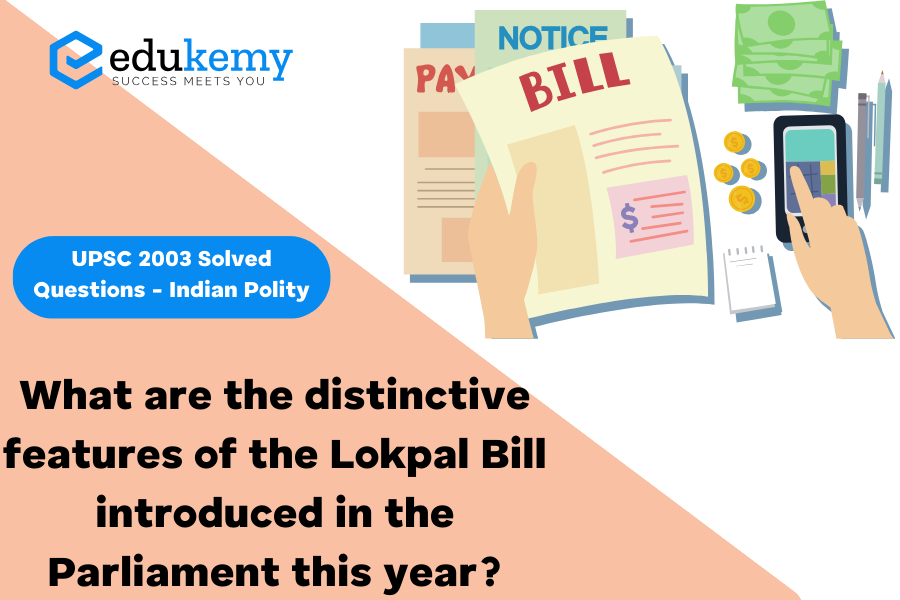
The Lokpal and Lokayuktas Act of 2013, commonly referred to as the Lokpal Act, is a legislation in India aimed at establishing the institution of Lokpal to investigate corruption allegations against specific public functionaries. Recently, the Lok Sabha approved an amendment to the Lokpal and Lokayukta Act, 2013. This amendment extends the time for public servants, trustees, and board members of Non-Governmental Organizations (NGOs) receiving government funds exceeding 1 crore or foreign funding exceeding 10 lakh to declare their assets and those of their spouses.
Contents
Key features of the amended bill include:
- Establishment of Lokpal at the central level and Lokayukta at the state level.
- Composition of Lokpal with a Chairperson and a maximum of eight members, half of whom are judicial members.
- Inclusion of 50% members from SC/ST/OBCs, minorities, and women on Lokpal.
- Selection of Lokpal Chairperson and members through a committee consisting of the Prime Minister, Speaker of Lok Sabha, Leader of Opposition in Lok Sabha, Chief Justice of India or a nominated Supreme Court Judge, and an eminent jurist appointed by the President based on the recommendations of the first four committee members.
- Inclusion of the Prime Minister within the Lokpal’s purview.
- Extension of Lokpal’s jurisdiction to cover all categories of public servants.
- Inclusion of all entities receiving donations over ₹10 lakh per year from foreign sources under Lokpal’s jurisdiction in accordance with the Foreign Contribution Regulation Act (FCRA).
- Provision for the protection of honest public servants.
- Empowerment of Lokpal with superintendence and direction over investigation agencies, including the Central Bureau of Investigation (CBI), for cases referred to them by Lokpal.
- Establishment of a high-powered committee chaired by the Prime Minister to recommend the selection of the Director, CBI.
- Creation of a Directorate of Prosecution headed by a Director of Prosecution under the overall control of the Director.
- Appointment of the Director of Prosecution, CBI, based on the recommendation of the Central Vigilance Commission.
- Transfer of CBI officers investigating Lokpal-referred cases with Lokpal’s approval.
- Provisions for the attachment and confiscation of property acquired through corrupt means, even during pending prosecutions.
- Clear timelines for preliminary inquiry, investigation, trial, and the establishment of special courts for expeditious proceedings.
- Mandate for the creation of the Lokayukta institution through state legislature enactment within 365 days from the Act’s commencement.

In case you still have your doubts, contact us on 9811333901.
For UPSC Prelims Resources, Click here
For Daily Updates and Study Material:
Join our Telegram Channel – Edukemy for IAS
- 1. Learn through Videos – here
- 2. Be Exam Ready by Practicing Daily MCQs – here
- 3. Daily Newsletter – Get all your Current Affairs Covered – here
- 4. Mains Answer Writing Practice – here

